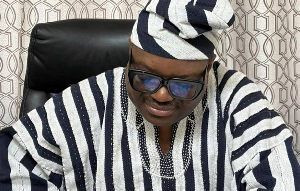Owning luxury property in Ghana comes with certain tax implications that property owners should be aware of. As a property owner, being knowledgeable about the various tax deductions and incentives available can help you maximize your tax savings. This article provides an overview of some of the key tax deductions that may be available to luxury property owners in Ghana.
Tax Incentives for Real Estate Development
The government of Ghana offers various tax incentives to promote real estate development and home ownership in the country. If you are engaged in building homes, apartment complexes, or other residential real estate, you may be eligible for favourable tax treatment.
Tax Holidays
Developers of affordable housing projects may qualify for corporate tax holidays of 5-10 years under the Ghana Investment Promotion Center (GIPC) Act. This means being exempt from paying corporate income tax for a period after project completion. The tax holiday is intended to promote access to housing for Ghanaians.
Reduced Import Duties
Real estate developers can also benefit from reduced rates of import duties on construction materials brought into the country. This makes housing construction more affordable. Developers may need to apply for special permits to access this incentive.
Capital Allowances
An annual capital allowance is granted on capital expenditures incurred during housing construction. This enables developers to write off the costs over time to reduce taxable income. The rate of capital allowance is currently 20% per year for 5 years.
Tax Deductions for Property Owners
If you own a luxury home, apartment, or vacation property in Ghana, you may qualify for certain tax relief as a property owner. This can help lower your tax liability each year.
Mortgage Interest Deduction
One of the biggest tax deductions for property owners is the mortgage interest deduction. All interest paid on a home loan each year is tax deductible. This provides an incentive for home ownership in Ghana. The higher your mortgage amount, the greater your potential deduction.
Property Taxes
All taxes paid to local authorities on owned properties can be deducted from your annual tax return. This includes basic property rates as well as any additional taxes. Be sure to keep receipts as proof of payment.
Home Improvement Costs
Expenses incurred on home improvements and renovations can be deducted, provided they add value to the property. This includes costs like construction materials, contractor fees, architectural drawings, and engineering reports.
Depreciation Allowances
A depreciation allowance lets you gradually deduct the purchase price of a property as it reduces in value over time. This is done by deducting a fixed percentage of the cost each year. In Ghana, an annual rate of 2% is used for this calculation.
Insurance Premiums
The insurance costs paid to have property and assets insured are tax deductible. This includes homeowner's insurance, fire insurance, flood insurance, and termite insurance. Maintain paperwork showing evidence of payments.
Mortgage Origination Fees
Fees paid when originating a new mortgage, such as administration, processing, and appraisal fees, can be deducted from taxable income. The fees are deductible in the year the mortgage loan was obtained.
Home Office Deduction
If you use a portion of your home exclusively for business purposes, you may qualify for a home office deduction. You can deduct a percentage of costs like rent, utilities, insurance, and repairs.
Cost Recovery Provisions
When calculating tax, property owners in Ghana can take advantage of certain cost recovery provisions. These enable you to recoup the cost of various expenses over a while.
Capital Allowances
A capital allowance is granted on the cost of acquiring a new property or constructing a building. This cost can be deducted at an annual rate of 2% over 50 years.
Loss Carry Forward
Net losses from a property in one year can be deducted against profits in future years. The loss can be carried forward indefinitely until fully recovered. This reduces an owner's tax burden over time.
Balancing Allowances
If an asset on a property gets disposed of, any undeducted expenses on that asset can be claimed as a balancing allowance. This enables the owner to recover the remaining costs.
Tax Compliance for Property Owners
To take advantage of available property tax deductions, luxury homeowners in Ghana need to comply with all tax regulations and reporting requirements.
Capital Gains Tax
Capital gains tax applies on the sale of a property when there is a profit. The tax rate is 15% of the gain on disposal. Proper documentation should be maintained related to purchase costs and improvements made.
Rental Income
Income earned from renting out a residential property is subject to tax at the owner's regular Income Tax rate. All rental income should be declared on annual tax returns.
Property Transfer Taxes
Whenever a property changes ownership, transfer taxes apply. This is paid as a percentage of the property value and split between the buyer and seller. Proper valuation of the property cost is important.
Tax Identification Numbers
Property owners need a tax identification number (TIN) to purchase and register properties. The TIN is also required for filing annual tax returns related to rental income, capital gains, etc.
Property Records
Adequate records should be maintained relating to purchase and improvement costs, rental income, taxes paid, etc. This supports claims made on tax returns and deductions taken.
Tax Planning Strategies
Proper tax planning enables luxury property owners to maximize savings and minimize their tax liability each year. Here are some useful strategies:
Expense Timing
Time expenses to fall within the current tax year when possible. Prepay property taxes, interest, and insurance before year-end. Schedule renovations and repairs before December 31.
Mortgage Refinancing
Refinancing into a larger mortgage can increase annual interest deductions. Also, consider an interest-only mortgage to keep yearly payments deductible.
Entity Ownership
Owning property under a limited company may allow additional deductions compared to personal ownership. Consult a tax professional on the best structure.
Leasing Out Property
Leasing out a vacation home or separate unit on a property generates rental income deductions. But balance this with the loss of capital gains exemption on a primary residence.
Home Equity Loans
Interest paid on home equity loans is tax deductible. This can provide owners with cash for other investments while offering continued deductions.
Donations
Donating conservation easements on part of your luxury property can provide an income tax deduction based on the reduced fair market value.
Cost Segregation Study
This study identifies components of a property that can be moved to shorter depreciation schedules, accelerating deductions.
Key Takeaways
● Real estate developers in Ghana enjoy incentives like tax holidays and reduced import duties
● Owning a luxury property opens up deductions for mortgage interest, property taxes, improvements, etc.
● Cost recovery allowances enable deductions on assets and losses over some time.
● Property owners must comply with capital gains, transfer tax, and income tax rules
● Tax planning strategies can help maximize eligible deductions each year.
Owning luxury real estate in Ghana has many financial benefits when handled correctly. Working with a tax advisor to utilise available property tax deductions and incentives allows owners to lower their taxable income and retain more wealth over the long term.
FAQs
What are the main tax deductions available to luxury property owners in Ghana?
Some of the key tax deductions include mortgage interest, property taxes, home improvement expenses, depreciation allowances, insurance premiums, and home office use. Owning a luxury property opens up many opportunities for tax savings.
How long can I carry forward property losses against future profits?
There is no time limit for carrying forward losses on property investments in Ghana. Net losses can be deducted against profits indefinitely until fully recovered over as many years as needed.
Are there tax incentives for building affordable housing projects?
Yes, developers of affordable homes may qualify for 5 to 10-year corporate tax holidays under the Ghana Investment Promotion Center Act. This promotes the construction of low-income housing.
Can I claim deductions on a secondary vacation home?
Yes, expenses like mortgage interest, property taxes, and improvements on a secondary or vacation home are still eligible for tax deductions just like your primary residence. But there is no capital gains tax exemption.
Should I use an entity like a company to own investment property?
Owning property through a company can provide benefits like lower tax rates on rental income. Consult a tax professional on the ideal ownership structure for your circumstances.
Press Releases of Wednesday, 13 March 2024
Source: VAAL Real Estate Ghana
Tax deductions for property owners in Ghana
Entertainment

Chez Amis CEO addresses NACOC arrest allegations
Opinions










